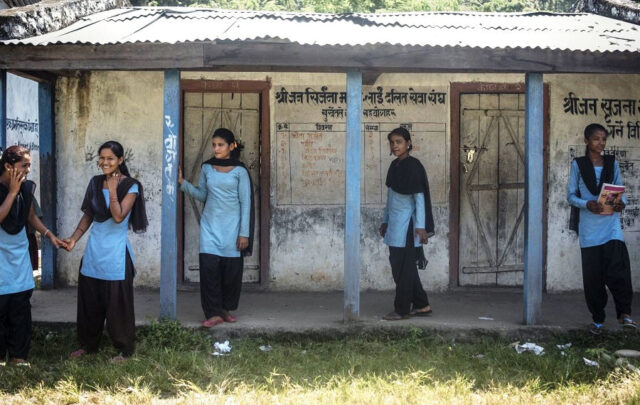Menstruation has been a major factor in the rising dropout rates among females, despite the nation’s promotion of the “Beti Bachao, Beti Padhao” campaign. A study conducted between 2022 and 2023 on “Menstrual Hygiene Management in India” has revealed alarming statistics.
The study titled “From Menarche to Menopause: Breaking the Silence,” based on ethnographic data of menstruating women, surveyed over 6,400 women aged 20 to 49 across 14 Indian districts, including 577 from Beed and Dharashiv (Osmanabad).
The report highlights challenges faced by women on account of issues surrounding menstruation. It also underlines the multi-sectoral nature of issues affecting women’s health, such as lack of water, soap, sanitation, doors, taps, and dustbins in many schools. It found that poor menstrual hygiene facilities and more than distance from school, are a key factor in girls’ absenteeism.
In Maharashtra’s Beed and Dharashiv districts, 50% of women aged 20-49 admitted to dropping out of school due to menstruation-related challenges. The Sulabh Sanitation Mission Foundation released the findings of this study on Friday in Mumbai.

Key Findings of the Study:
- In Beed, 19.1% of women surveyed were unaware of which body organ menstruation is related to.
- 24.5% of women in Beed and 16.8% in Dharashiv could not identify the side effects of menstruation.
- To reduce expenses, 62.2% of women combined the use of cloth with sanitary pads.
- Monthly expenditure on menstrual products averaged ₹27 in Beed and ₹57 in Dharashiv.
- Nearly 50% of women used cotton cloth, and 62.2% of them reused the same cloth.
- Only 14.3% of women in Beed sought medical advice, and merely 7.1% visited a doctor.
- In Dharashiv, 70.4% of women stated that healthcare facilities were far away, while 14.8% mentioned they could not afford medical consultation.
- 44.9% of respondents across both districts refrained from seeking medical advice due to the unavailability of female doctors.
50,000 Cases of Breast Cancer Rise Yearly in India in Decade, Reveals Study
Neerja Bhatnagar, National Director of Sulabh International Social Service Organization, emphasized that the study highlights the challenges faced by women and girls from marginalized communities, exposing the gaps in sanitation and healthcare infrastructure.
“Maharashtra has always been ahead in advocating for gender equality. If the state implements the recommendations from this study, it could set a powerful example for others to follow” she said.
The report was launched in the presence of Dr. Neelam Gorhe, Deputy Chairperson of the Maharashtra Legislative Council. It calls for immediate action to address menstrual health and hygiene challenges, improve healthcare accessibility, and ensure educational opportunities for girls, regardless of menstruation-related barriers.